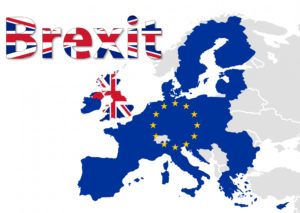 I have a tool that can be used to measure the impact of Brexit on biotechnology in the United Kingdom.
I have a tool that can be used to measure the impact of Brexit on biotechnology in the United Kingdom.
I have been measuring global biotechnology for eight years and my objective data-driven metrics provide both a baseline to gauge future directions, and guidance for how to improve the sector’s performance.
Eight years ago I developed the Scientific American Worldview Scorecard (link), and I have been updating it annually. The latest version reveals some important highlights.
 The Worldview Scorecard measures biotechnology industries in 54 countries, and focuses on Public Company Performance, Intellectual Property Protection, Intensity, Enterprise Support, Education / Workforce, Foundations, and Policy and Stability. The performance of each country is normalized to a score from 0 to 10, and scores for each category are combined to assess category performance. The simple average of category scores is then used to derive the final score, which is normalized on a scale from 0 to 50.
The Worldview Scorecard measures biotechnology industries in 54 countries, and focuses on Public Company Performance, Intellectual Property Protection, Intensity, Enterprise Support, Education / Workforce, Foundations, and Policy and Stability. The performance of each country is normalized to a score from 0 to 10, and scores for each category are combined to assess category performance. The simple average of category scores is then used to derive the final score, which is normalized on a scale from 0 to 50.
The UK’s score in the latest edition of the scorecard is 26.5, putting it in eighth place of the 54 countries. This is an improvement over last year’s rank of ninth. For reference, the UK was ranked 12th in the inaugural edition in 2009.
Public Company Performance
The United Kingdom has surpassed Australia for second place in market capitalization of publicly traded companies. The United States leads in this measure and Australia has historically followed in second. Last year Australia added US$700mm in market capitalization, whereas the UK added a staggering US$17bn (by contrast, the US added US$220bn). Despite the UK’s position in second place, it still gets low scores in this measure — the US market capitalization is so great that all other countries get low scores.
| Public Company Revenues ($mm) | Public Companies |
| 0.6 / 10 | 0.8 / 10 |
Intellectual Property Protection
Patent strength in the UK is strong both in objective measures (“Patent Strength”) and in subjective measures (“Perceived IP protection”). Because IP protection is central to innovation in the life sciences, maintaining high scores in this area is key to supporting a strong British biotechnology sector.
| Patent strength | Perceived IP protection |
| 8.5 / 10 | 9.1 / 10 |
Intensity
The intensity measure relies heavily on publicly traded company activity, and also examines patenting activity. Larger economies, such as the UK, tend to have lower scores than smaller economies in intensity metrics, owing to the diversification of their activities.
| Public Companies / capita | Public Company Employees / capita | Public Company Revenues / GDP | Biotech patents / total patents filed with PCT | Value added of knowledge- and technology-intensive industries |
| 1.6 / 10 | 0.8 / 10 | 3.4 / 10 | 4.1 / 10 | 1.4 / 10 |
Enterprise Support
The United Kingdom has strong scores in most of the enterprise support metrics. Given the possible complications of international business following separation of the UK from the Euro zone, it will be important to maintain a business friendly environment and to encourage investments in growing businesses.
| Business Friendly Environment | Biotech VC | VC Availability | Capital Availability |
| 8.5 / 10 | 0.8 / 10 | 6.3 / 10 | 9.3 / 10 |
Education / Workforce
The UK has strong performance in the Education and Workforce metrics, but two areas are of concern. Firstly, Talent Retention is low (i.e. brain drain is high). This is likely to worsen with Brexit. Likewise, Brain Gain (recruitment of global talent) is low, and also stands to worsen with Brexit.
| Post-secondary science graduates / capita | PhD graduates in life sciences per million population | R&D personnel per thousand employment | Talent Retention | Brain Gain |
| 7.6 / 10 | 6.4 / 10 | 5.1 / 10 | 2.3 / 10 | 5.8 / 10 |
Foundations
The UK could improve in most of the Foundations measures. These represent key areas that the new leadership should focus on if they want to enable sustained growth in biotechnology.
| Business Expenditures on R&D (% of GDP) | Gross Domestic Expenditure on R&D (% of GDP) | Infrastructure Quality (roads, ports, electricity, etc.) | Entrepeneurship and Opportunity |
| 2.8 / 10 | 3.7 / 10 | 6.7 / 10 | 9.1 / 10 |
Policy and Stability
The policy and stability scores are high in the most recent edition of the scorecard, and this will be a key area to watch to monitor the impact of Brexit on political and business conditions.
| Political Stability and Absence of Violence/Terrorism | Government Effectiveness | Regulatory Quality | Rule of Law |
| 6.9 / 10 | 7.8 / 10 | 8.8 / 10 | 9.2 / 10 |
Overall Score
Overall the UK’s scores net it an eighth place ranking out of 54 countries, which places it above Sweden and below Finland. The ranking of countries has been observed to be very competitive, with countries losing their rank if they simply maintain their numerical scores. So it will be very interesting to see how the UK’s scores and performance measure up as the exit negotiations proceed, and as the Brexit is implemented.
| Productivity | IP | Intensity | Enterprise Support | Education / Workforce | Foundations | Policy and Stability | Score |
| 0.7 / 10 | 8.8 / 10 | 2.2 / 10 | 6.2 / 10 | 5.4 / 10 | 5.6 / 10 | 8.2 / 10 | 26.5 / 50 |
Comments are closed.